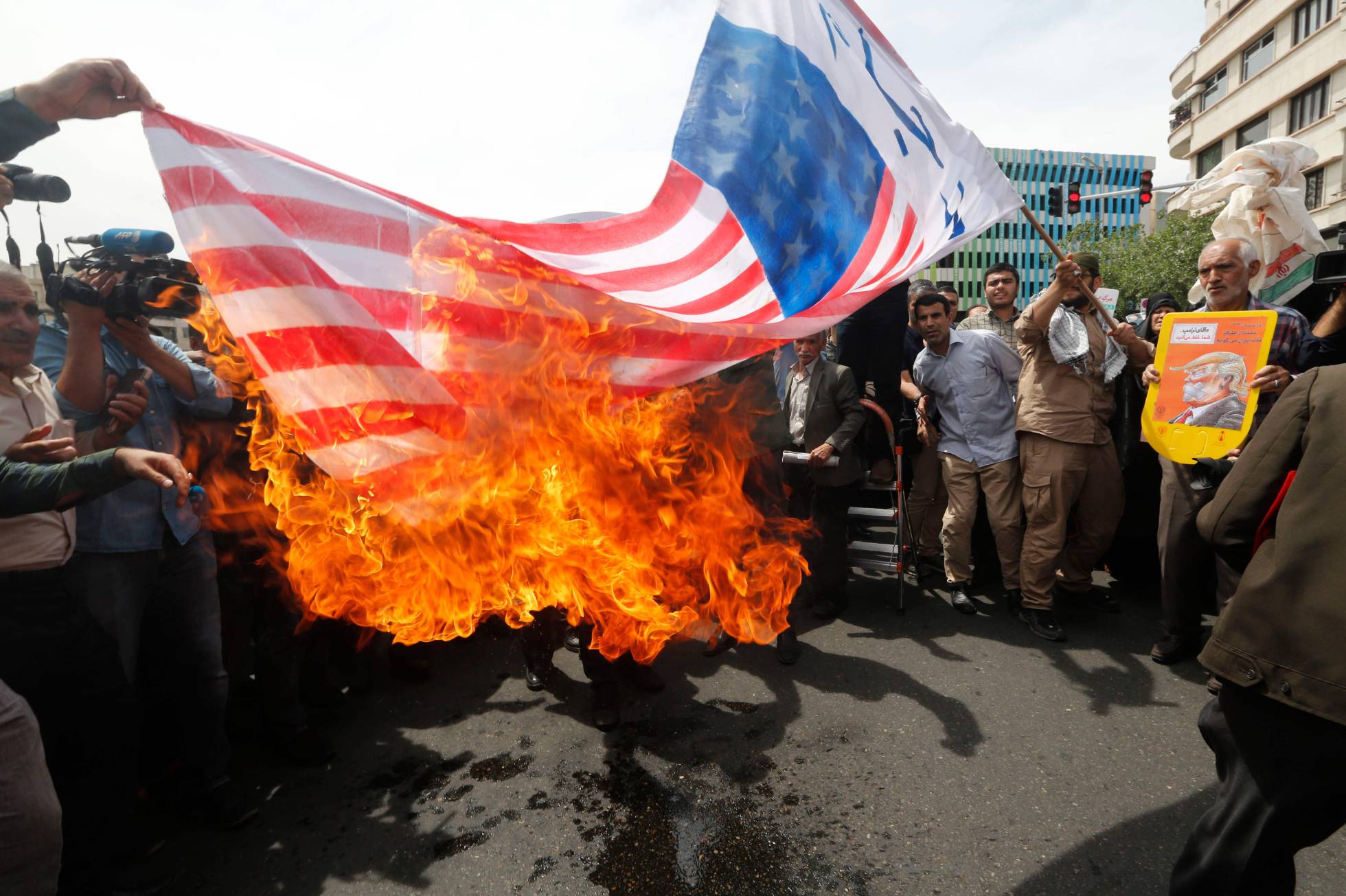
Only firm international diplomacy can stop the Middle East from sliding toward nuclear proliferation.
President Donald Trump’s decision to withdraw the United States from the 2015 nuclear agreement with Iran is not the first time he has abandoned a key international treaty. From the Trans-Pacific Partnership to the Paris climate accord, the destruction of multilateral frameworks has become a Trump specialty.
However, even though this is now standard practice for him, abandoning the Joint Comprehensive Plan of Action – the formal name of the agreement with Iran – is just too much. There are already those who are comparing the move to President George W. Bush’s ill-fated attempt to reshape the Middle East with wars in Afghanistan and Iraq. Like Bush’s military adventures, Trump’s strategy for the region carries enormous risks, especially since he has thrown away what little remained of the trans-Atlantic alliance that was founded on the American policy of force and the European emphasis on diplomacy.
Trump’s decision is not just about limiting Iran’s access to weapons of mass destruction; rather, the president’s objective is to bring about regime change which he apparently hopes to achieve by depleting the economic and strategic resources of the Islamic Republic of Iran. By resuming sanctions, Trump is almost begging the Iranian people, who will be the most affected by the measures, to rebel against the government.
Trump’s withdrawal from the JCPOA leaves Iran with two options, neither of them good. The first is to renegotiate the agreement with the other signatories: China, France, Russia, the United Kingdom, Germany and the European Union. Iranian President Hassan Rouhani has already hinted at this possibility, but the resumption of sanctions may limit his ability to follow such a path. Obliged to choose, European companies will sacrifice their business deals in Iran to maintain access to the U.S. market; and as its economy collapses, the Iranians will start spreading blame.
The second option is no better. The Iranian reformists can capitulate to the hawks, discard the JCPOA, resume nuclear activities and accelerate the country’s ballistic missile program. That would almost certainly guarantee an Israeli pre-emptive strike against Iranian nuclear facilities, with the blessing or complicity of the United States. Next, Iran will feel free to relaunch intermediaries against Israel, starting with Hezbollah in neighboring Lebanon, which could lead to widespread conflict and the participation of other U.S. allies in the region, including the Saudis and other Sunni Arab powers.
Unfortunately, the result which should be avoided is exactly that which Israel’s leaders seem determined to bring about. Last month, Israeli Prime Minister, Benjamin Netanyahu accused Iran of failing to comply with the nuclear agreement. At the time, his bizarre presentation – which, to top it all off, was in English – was ridiculed in the West. Today it seems more like an omen.
In fact, the Netanyahu-Trump duo, which is largely responsible for sinking the nuclear agreement, is an explosive alliance of two narcissists who have abandoned the dysfunctional domestic politics of their respective countries in order to dictate international behavior. In Trump’s case, the objective seems to be the systematic destruction of President Barack Obama’s legacy, with no other purpose than to fulfill the promises of his presidential campaign; which in some respects has never really come to an end.
Netanyahu, on the other hand, is in love with the carefully crafted image of being the one who will save the Jewish people from a second Holocaust. Faced with legal problems that cast doubt on his personal political fortunes – and which may lead to his dismissal – warmongering has become his strategy to win re-election. In fact, support for Trump in Israel reached a record high after his decision to withdraw from the JCPOA and as a result of the massive military attacks by Israel on Iranian targets in Syria. Netanyahu’s tactics also serve to distract international attention from the Palestinian problem which is once again entering a critical phase.
Israel has the most powerful army in the Middle East, but Netanyahu cannot be allowed to use it for his own political gain. The last time Israel fought an interstate war was in 1973, and the trauma of that battle lives on. In addition, military force alone did little to protect the country’s borders. The “Begin Doctrine,” the Israeli strategy of conducting pre-emptive strikes to maintain the regional monopoly of nuclear weapons, did not reduce the number of rockets launched by Israel’s enemies backed by Iran.
Only firm international diplomacy can stop the Middle East from sliding toward nuclear proliferation. Even without the United States, the other signatories of the JCPOA could save the central principles of the agreement by lending their support to moderate Iranian leaders, thereby reducing the effects of new sanctions. They could also help defuse the crisis on Israel’s northern border where there are already direct confrontations between Israeli and Iranian forces.
In order to achieve a new agreement which guarantees the continuity of Iran’s denuclearization, which puts its ballistic missile program under surveillance, and which encourages a less hostile foreign policy, sanctions and regime change must be abandoned. Most likely, Trump will hear the same message from his North Korean counterpart Kim Jong Un prior to the meeting between the two leaders scheduled for June.
The irony is that this is exactly the kind of “big deal” that Iran proposed to the Bush administration in May 2003. Bush rejected the offer and swore never again to speak with a member of the “Axis of Evil.” Later, in reference to North Korea , another member of that imaginary “Axis,” former Vice President Dick Cheney declared, “We don’t negotiate with evil; we defeat it.”
But in switching diplomacy for military threat, the Bush administration closed the door to a solution with Iran. With Trump adopting the same tactics today, there is nothing to indicate the results will be any different.

Leave a Reply
You must be logged in to post a comment.